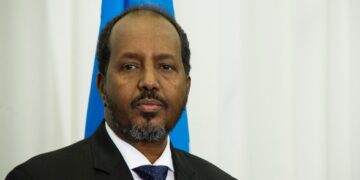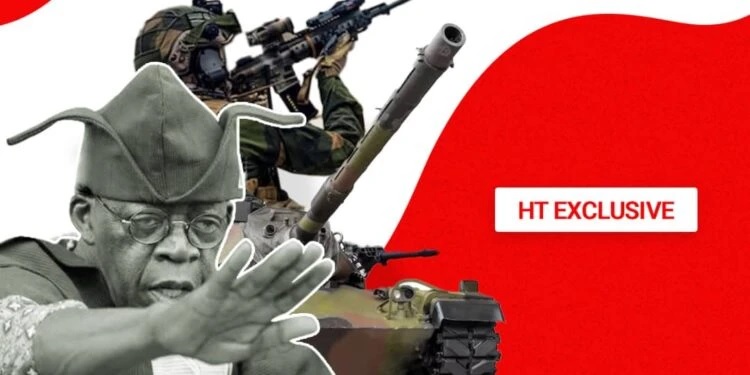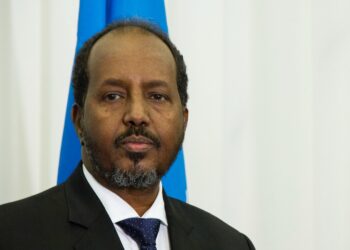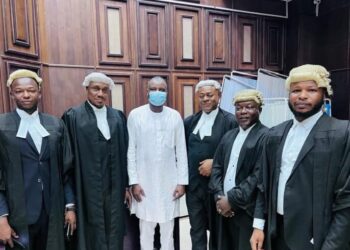By John Ikani
Nigeria’s President Bola Tinubu has informed the Nigerian Senate about ECOWAS’ plans for military action and sanctions against the military officers who seized power in Niger Republic.
This comes after the ECOWAS bloc issued a warning that they will resort to military force if the new government led by Abdourahmane Tchiani does not hand over power to the ousted president within a week.
President Tinubu who doubles as ECOWAS Chairman had earlier hosted an extraordinary meeting of the bloc in Abuja, during which several resolutions were adopted, including the imposition of sanctions.
These measures include the closure of land and air borders between ECOWAS countries and Niger, establishing a no-fly zone for commercial flights to and from Niger, and suspending all commercial and financial transactions between ECOWAS Member States and Niger.
In an effort to mediate, Tinubu also dispatched a high-level delegation led by General Abdulsalami Abubakar (rtd) to meet with the coup leaders.
However, the talks only involved representatives of the junta and were deemed unsuccessful.
As military action appears to be the last option, there are debates on whether President Tinubu requires legislative approval to deploy Nigerian soldiers to restore constitutional order in Niger Republic.
What are the constitutional provisions on the matter?
The provisions of Section 5 (4) of the 1999 constitution state conditions under which the president can deploy the country’s armed forces in a foreign battle.
“(4) Notwithstanding the foregoing provisions of this section –
“(a) the president shall not declare a state of war between the Federation and another country except with the sanction of a resolution of both Houses of the National Assembly sitting in a joint session;
“(b) except with the prior approval of the Senate, no member of the armed forces of the Federation shall be deployed on combat duty outside Nigeria.“
However, Subsection 5 of the same section spells conditions under which the president can solely decide to deploy members of the armed forces on combat duty outside Nigeria.
“(5) Notwithstanding the provisions of subsection 4 of this section, the president; in consultation with the National Defence Council, may deploy members of the armed forces of the Federation on a limited combat duty outside Nigeria if he is satisfied that the national security is under imminent threat or danger: Provided that the president shall, within seven days of actual combat engagement, seek the consent of the Senate and the Senate shall thereafter give or refuse the said consent within fourteen days.“
Conclusion: President Tinubu will require a clear and explicit approval from the Senate should the need arise to deploy Nigerian armed forces in any external conflict.
The situation at hand does not directly threaten Nigeria’s national security, but rather that of Niger.
As such, adherence to the provisions of the constitution and seeking legislative consent would be crucial in any potential military involvement beyond Nigeria’s borders.




































